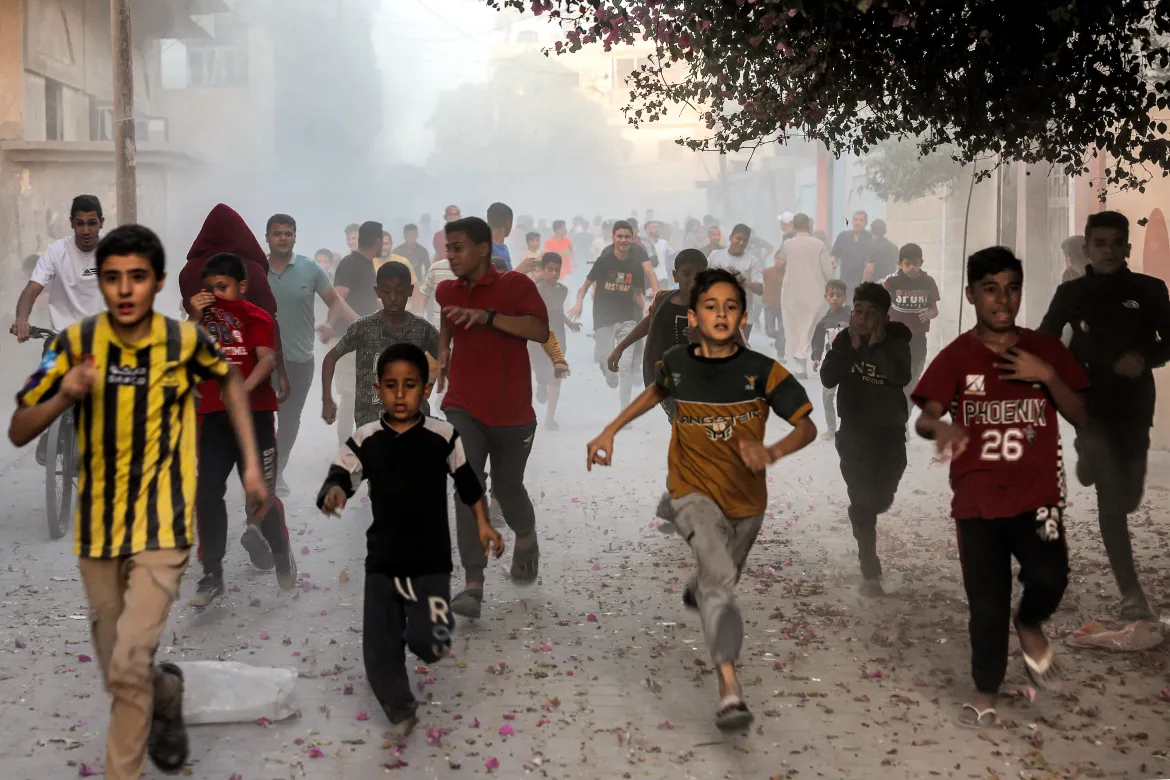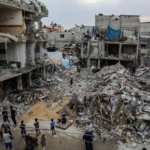Metres away from the concrete and steel fence separating the Gaza Strip from Egypt, 11-year-old Malak Ayad flies a paper kite high in the sky – a welcome distraction from the horrors of war.
“Every day I play with my brothers and cousins with kites next to the Egyptian border,” said the Palestinian girl, displaced from Gaza City with her family to the southern city of Rafah.
“When I do, I feel free and safe,” she added, gently manoeuvering her kite, which she calls “Butterfly”, back and forth across the border with a white string.
Her cousins and friends run along the fence trying, in vain, to get their kites to take flight, but a loud explosion in the distance makes them stop in their tracks.
- 3 UNICAL students abducted on campus
- ‘Bury your head in shame’, Kaduna Politician Blasts El-Rufai’s Son for attacking Gov Sani
“Quickly, the (Israeli) bombardment is getting closer,” said Malak’s uncle Mohammed Ayad, 24, urging the children to leave the area.
Malak quickly obeys, reeling in her kite and folding it, then rushes back to a tent where her family is taking shelter in the nearby Khir area.
“Playtime is over. When air strikes begin we run back home,” Malak said, trembling with fear.
The war began with Hamas’s unprecedented October 7 attack that resulted in about 1,160 deaths in Israel, mostly civilians, according to an AFP tally of Israeli official figures.
Israel’s retaliatory campaign to destroy Hamas has killed at least 32,782 people, mostly women and children, according to the Gaza health ministry.
‘Trapped’
Malak Ayad and her family are among 1.5 million people, most of them displaced by the war, now living in Rafah, where Israel has vowed to carry a ground offensive as it pursues its campaign against Hamas.
Despite the war and the fear that grips her, Malak seems to be happy to fly her kite and dreams of life as it was before the war broke out on October 7.
“My kite flies to Egypt every day while we are here trapped in Gaza,” said Malak, who wears a bracelet featuring the Palestinian flag.
“I don’t know when we will be able to return home,” she said, adding that her mother told her that her school has been hit by the Israeli army and “destroyed”.
Haitham Abu Ajwa, 34, who is also displaced from Gaza City, said kite flying “reminds me of my childhood”.
He too lives in a tent in Rafah with his wife and two boys, Mohammed, 5, and seven-month-old Adam.
Flying kites helps to “free oneself of negative thoughts”, he said, and the border area with Egypt is “the ideal place to expel… the sadness and pain that we feel”.
“In the camps, you cannot feel free or comfortable,” said Abu Ajwa as he helped Mohammed fly a kite.
Dozens of children, some with their families, come daily to the border area in the afternoons to fly kites across the frontier.
Some start up conversations with Egyptian soldiers manning surveillance towers.
When Malak’s kite flew past the watchtower, one of the soldiers called out to her: “Well done, princess.”
The little girl thanked him with a wave and said, “I love Egypt. My wish is to travel there like my kite.”

 Join Daily Trust WhatsApp Community For Quick Access To News and Happenings Around You.
Join Daily Trust WhatsApp Community For Quick Access To News and Happenings Around You.

